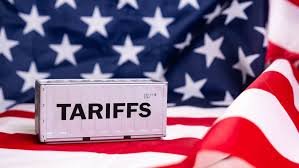The United States has begun enforcing new tariffs on all small packages entering the country, closing a long-standing loophole that allowed billions of dollars’ worth of goods to arrive duty-free.
Earlier this summer, President Donald Trump announced the removal of a tariff waiver that had exempted goods valued under $800 from import duties. As of Friday, every package entering the US is now subject to tariffs, regardless of value.
The new levies mark the latest escalation in Trump’s trade war, pushing tariffs to their highest levels in decades and unsettling global trading partners. In response, postal services in countries including Germany and Singapore said they would suspend deliveries to the US, citing a lack of clarity on how the new duties would be collected.
A senior administration official said Washington is working with foreign governments and the US Postal Service to minimize disruptions. The suspension of so-called de minimis treatment follows Trump’s earlier decision to end the waiver for goods from China and Hong Kong.
Chinese Imports Most Affected
The policy is expected to hit Chinese e-commerce giants like Shein and Temu, which ship low-value items directly to US consumers. The White House noted that annual de minimis shipments surged from 134 million in 2015 to more than 1.36 billion in 2024, with officials warning the exemption had been “abused” for smuggling, including fentanyl.
Peter Navarro, Trump’s senior trade adviser, said: “Foreign post offices need to get their act together when it comes to monitoring and policing the use of international mail for smuggling and terror purposes.”
Officials added that after eliminating the loophole for Chinese packages, daily de minimis shipments dropped from 4 million to 1 million. However, they cautioned that without a global suspension, China could reroute goods through third countries to disguise their origin.
Under the new system, senders of low-value packages to the US must either pay the same tariff rate their own country applies to American goods, or a flat fee of $80–$200. The flat-fee option will only be available for six months to give postal services time to upgrade systems for tracking and reporting shipment details.

